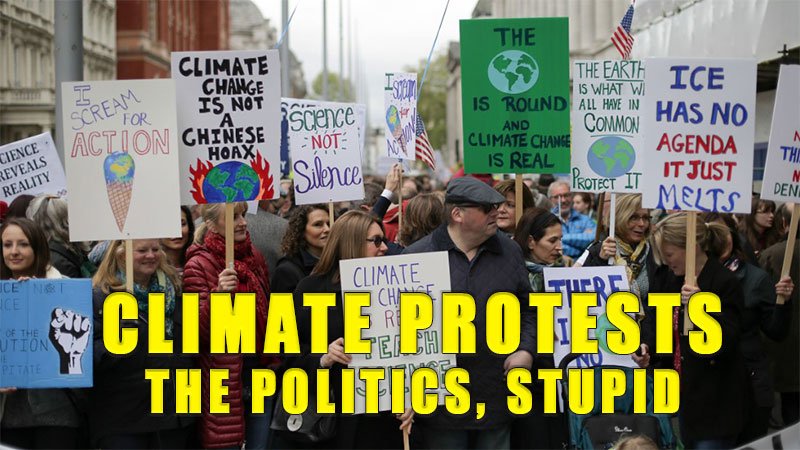Why climate protests are not transforming policy in either rich or poor countries
Is it time to panic? The natural environment and ecological systems that sustain all forms of life are collapsing, say recent reports from the Intergovernmental Panel on Climate Change, Intergovernmental Science-Policy Platform on Biodiversity and Ecosystem Services, Climate Central, and Institute for Public Policy Research. We face criss-crossing crises of climate change, mass loss of species, topsoil erosion, forest felling and acidifying oceans. Global warming threatens more and worse cyclones, droughts, forest fires, floods and climatic shifts, with catastrophic consequences for food, water, livelihoods, housing and health.

Visit our store at http://online.ensemble.net.in
To limit global heating on 2010 levels to 1.5°C (ideal) or 2°C (minimum) by 2030, anthropogenic emissions must decline by 45%/ 25% before 2030 and reach zero by 2050/ 2070 respectively. The actual trajectories are in the opposite direction. Despite all the attention, promises and action, global carbon emissions climbed to a record high last year; 136 of the 184 Paris Pact climate commitments are insufficient to meet either 1.5°C/ 2°C goal. Efforts must increase threefold to meet the 2°C target, and fivefold for 1.5°C.
The poorest people and countries will be hit hardest, with millions locked in a downward spiral of malnutrition, water scarcity and loss of livelihoods. In Asia 237m people, including 36m in India, could face annual coastal flooding threats by 2050. In 2015 pollution killed 2.5m Indians. This month, while “gas chamber” Delhi experienced a public health emergency, Australia witnessed unseasonably early killer forest fires.
The need is for transformative action but governments remain trapped in incremental reforms. Because the sacrifices demanded are immediate, real and substantial but the gains are projected, future, generalised and diffused, the logic of individual costs and benefits clashes with the logic of collective action, for citizens and countries. The brutal reality is that the only pathway to reduce emissions on the scale demanded is for poor countries to remain mired in poverty and, in shades of eugenics, to stop breeding; and for sizeable numbers of working and middle class people in rich countries to fall into poverty. In a vicious circle, poor countries lack social security, which makes poor families look to more children as old age insurance, and the growing population exacerbates every dimension of the climate crisis.
The domestic politics of persuading citizens in rich and poor to cut or abandon living standards, and the global politics of financial and technology transfers in pursuit of convergence, are fearsomely challenging. Most people fear climate change and want something done – so long as it has no major impact on their lives. In a Washington Post poll, four-fifths accepted climate change is man-made, half agreed that urgent action is needed, but only 40% would make ‘major sacrifices’. Only those whose present is assured will concern themselves more with the future. In conditions of mass Asiatic poverty, climbing out of life-killing conditions now is of higher priority than ensuring a future for succeeding generations. Elevating climate change to the topmost priority is a luxury that countries can afford only after they have climbed the per capita income ladder.
View our Blog: https://ensembleias.com/blog/
In this present-vs-future tussle, no political party is going to win majority support in India by promising to end poverty alleviation in favour of slowing climate change. But equally, leaders in northern countries – who have far deeper carbon footprints and greater financial and technological capabilities to undertake the necessary action – will face political extinction if they commit to drastic income reductions for their citizens in order to assist poor countries cope with the transition to a decarbonised economy.
Effective action means job losses and major drop in lifestyles for Australians, when the big current emitters are China, India and the US, and Australian action will make only a miniscule contribution to reducing the risk of climate catastrophe. Neither equation computes in the real world of politics and that – not the ignorance or venality of political leaders – is the primary explanation for lack of effective action. That is the real policy challenge and haranguing, disruptive protests and slogans are no substitute for policy action.
Source : Times of India | Written by: Ramesh Thakur




